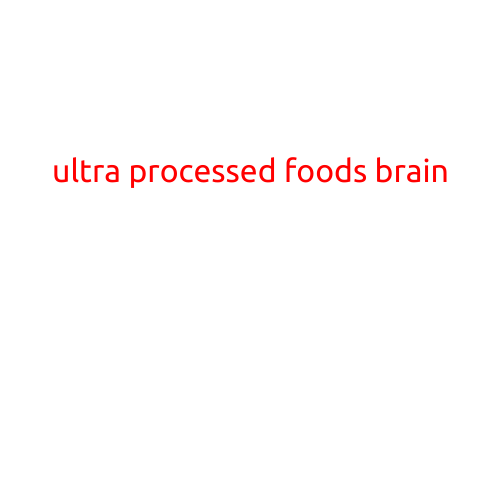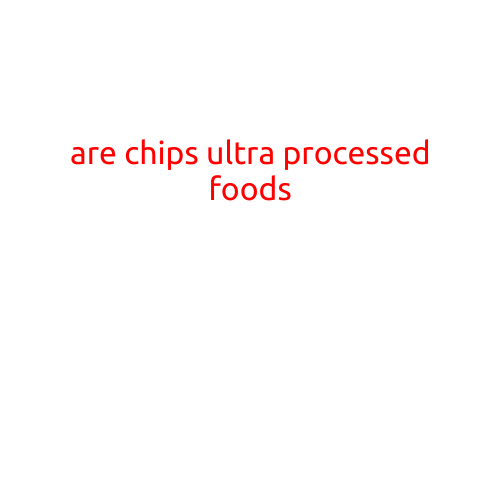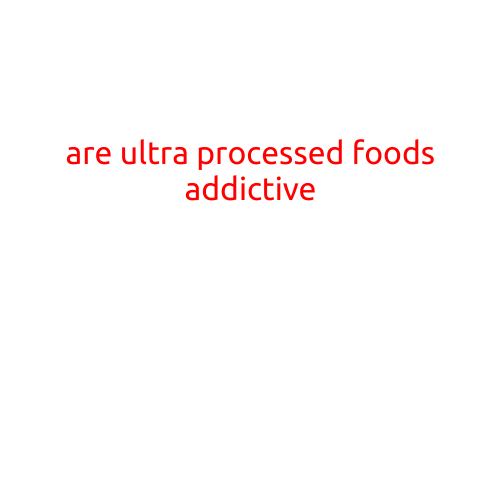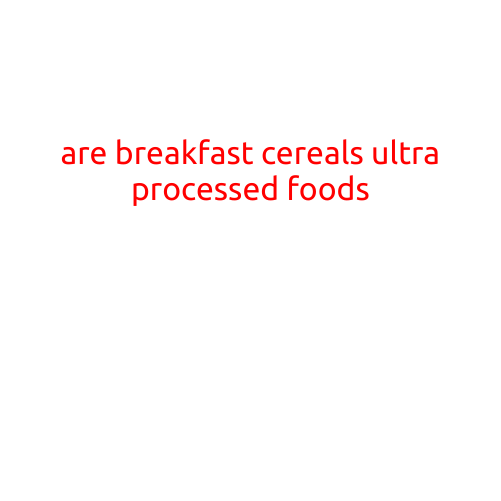
The Ultra-Processed Foods Brain: How the Food We Eat Affects Our Cognitive Function
Have you ever wondered if the food you eat has an impact on your brain function? It’s no secret that a healthy diet rich in fruits, vegetables, and whole grains is linked to a lower risk of chronic diseases like heart disease, diabetes, and obesity. But what about the impact on our brain health? Research has been pouring in on the effects of ultra-processed foods on our brain function, and the results are both fascinating and concerning.
What are Ultra-Processed Foods?
Ultra-processed foods are products that have been heavily transformed from whole foods, often using additives, preservatives, and other chemicals to extend their shelf life and enhance their taste. These foods are often found in packaged and processed products, including snacks, baked goods, sugary drinks, and frozen meals.
Examples of ultra-processed foods include:
- Frozen pizza
- Sugary cereals
- Processed meats (hot dogs, sausages)
- Baked goods (muffins, cookies)
- Energy drinks
- Candy
The Impact on Cognitive Function
Studies have shown that a diet rich in ultra-processed foods can negatively impact cognitive function, particularly in areas such as:
- Memory: A diet high in ultra-processed foods has been linked to lower memory performance in both children and adults.
- Attention: Research has found that a diet heavy in ultra-processed foods can impair attention and impulse control.
- Decision-making: Ultra-processed foods have been shown to impair decision-making skills, possibly due to the high levels of added sugars and unhealthy fats.
- Mood: Consuming high amounts of ultra-processed foods has been linked to increased symptoms of depression and anxiety.
Why Do Ultra-Processed Foods Affect Brain Function?
Several factors contribute to the negative effects of ultra-processed foods on brain function:
- Inflammation: Ultra-processed foods can cause chronic inflammation, which has been linked to cognitive decline.
- Gut-brain axis: The gut microbiome plays a crucial role in influencing brain function. A diet high in ultra-processed foods can disrupt the balance of gut bacteria, leading to changes in brain chemistry.
- Nutrient deficiencies: Ultra-processed foods often lack essential vitamins, minerals, and antioxidants, leading to deficiencies that can impact brain function.
- Additives and preservatives: These chemicals can interact with the brain and impact cognitive function.
Boosting Brain Health with Whole Foods
The good news is that a diet rich in whole, minimally processed foods can have a profound impact on brain health. Focus on incorporating:
- Fruits: Berries, citrus fruits, and leafy greens are rich in antioxidants and essential vitamins.
- Vegetables: Cruciferous vegetables, like broccoli and cauliflower, contain compounds that support brain health.
- Whole grains: Whole grains like brown rice, quinoa, and whole wheat provide essential fiber and nutrients.
- Nuts and seeds: Walnuts, chia seeds, and flaxseeds are rich in healthy fats, protein, and antioxidants.
- Lean protein: Include sources of lean protein like salmon, turkey, and lentils in your diet.
Conclusion
The ultra-processed foods brain is a reality that cannot be ignored. The impact of these foods on brain function is a growing concern, particularly in children and adolescents. By making informed choices about the food we eat, we can support brain health and reduce the risk of cognitive decline. Remember, a diet rich in whole, minimally processed foods is the key to unlocking a healthier, happier brain.





